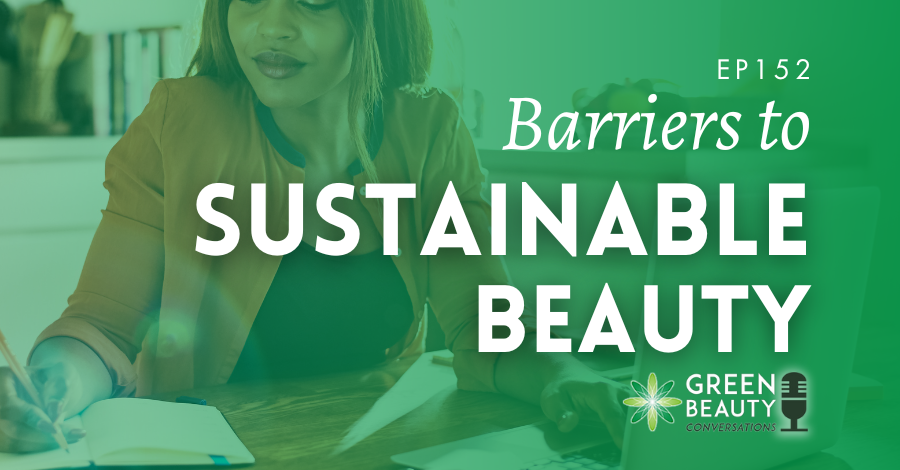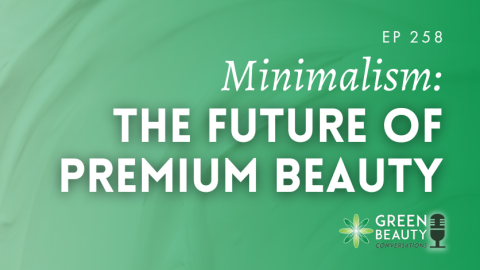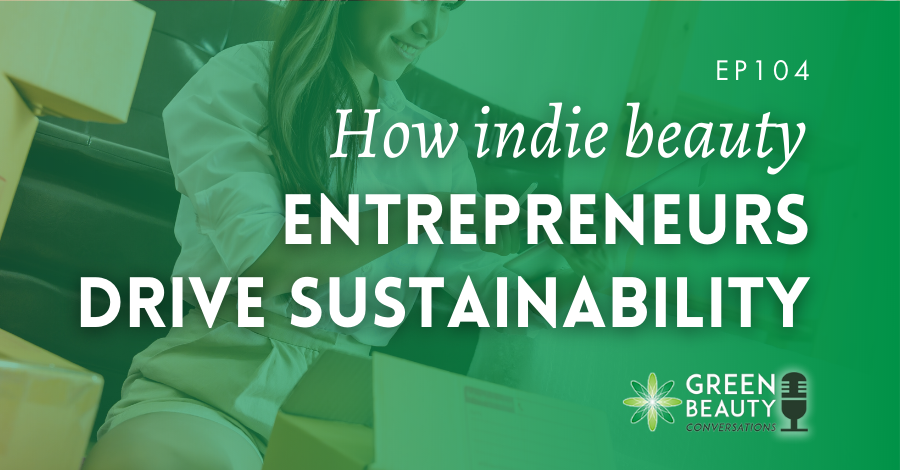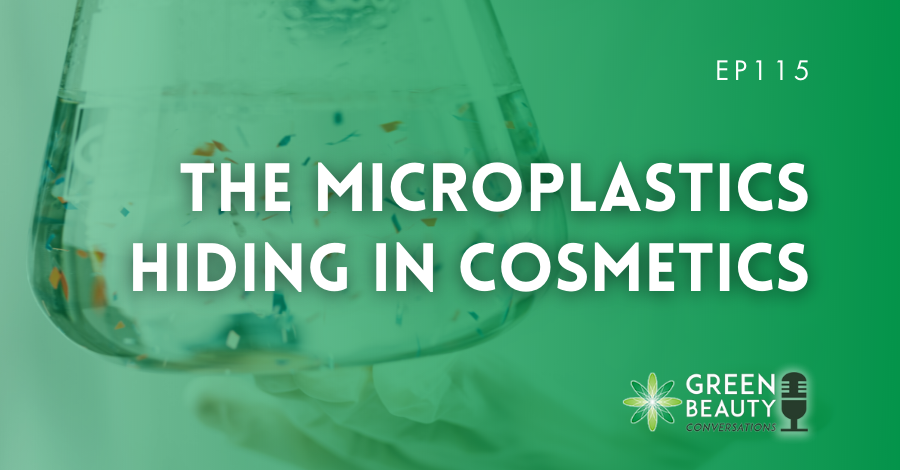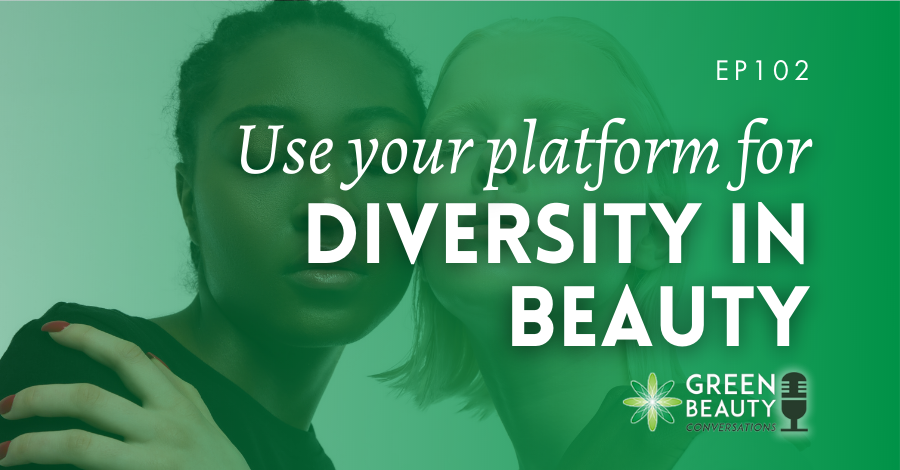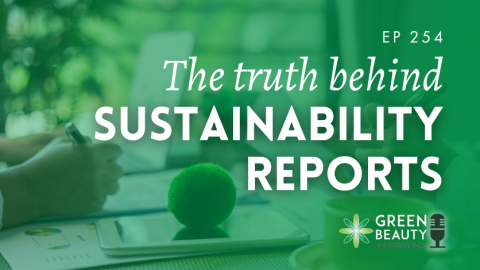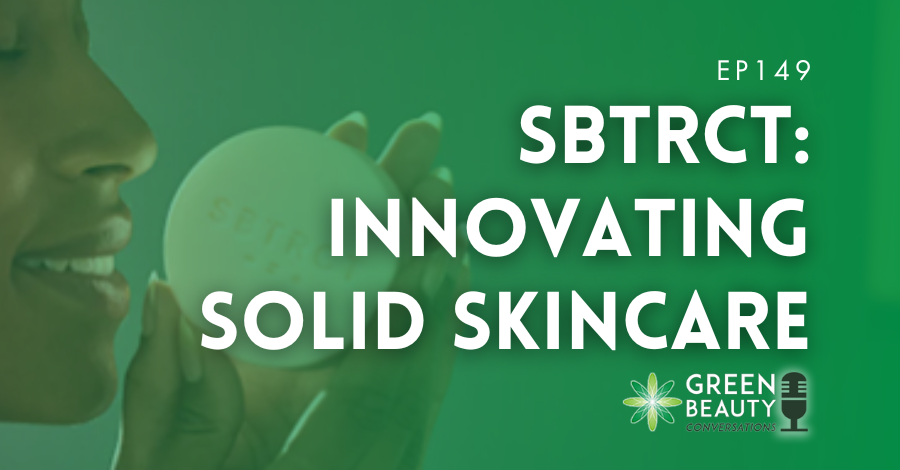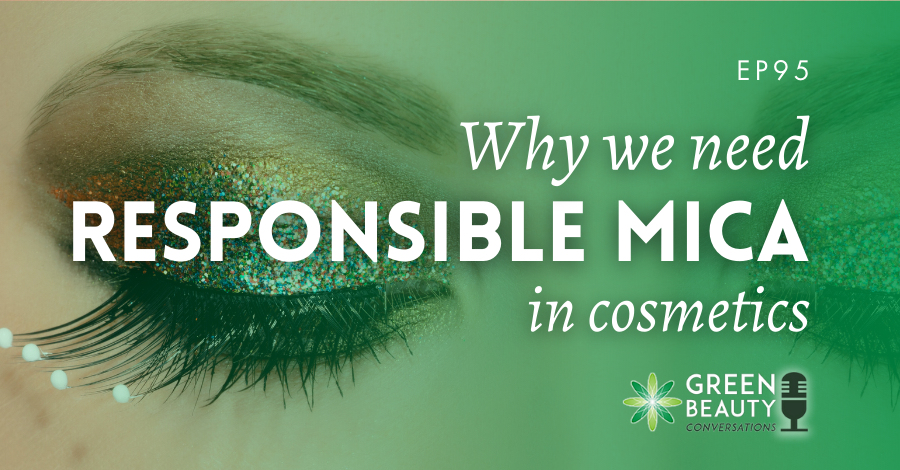From interviewing numerous founders for this podcast, we know that starting an indie beauty brand based on sustainability principles from the outset can incur additional costs over and above those of a regular launch. Driving a business along sustainability principles can also limit your options for packaging, ingredients, suppliers, partners and more. But, as we discussed in episode 150, it is still far better and less problematic to do this than retrofit sustainability into your brand later on.
However, if you are a beauty brand founder of colour or from a minority, then both anecdotal and statistical evidence shows that you will face almost insurmountable barriers to entry just starting a beauty brand, let alone one founded also on sustainability principles. In our last episode on the history of slavery in soapmaking, we heard indie beauty founder and minority community activist Dr Candace Parrish explain that embracing sustainability is expensive and that these extra costs limit entrepreneurs of colour from getting into this industry in the first place.
In this green beauty opinion, podcast host and Formula Botanica CEO Lorraine Dallmeier explores the points Candace raised to take a look at the barriers to entry for entrepreneurs of colour and from minorities, especially when it comes to sustainable beauty.
Beauty startup entrepreneurs of colour and from minorities face more barriers and costs than their white peers. @FormulaBotanica podcast asks what can help change this. #entrepreneursofcolour #beautystartups #indiebeauty Share on X
Lorraine reminds us of some statistics she quoted in podcast episode 97 showing that in 2021, black female startup founders received just 0.34 percent of the total venture capital spend in the United States, although apparently, that figure was incredibly a five-year high. More recently, a 2022 report said that it can cost founders of colour at least $250,000 more than their white peers to execute a startup*. These costs are both direct and indirect and can be a result of higher interest rates for loans, added consultancy fees, and the founders’ lack of eligibility for grants or accelerator schemes.
If the startup system is weighted against founders of colour and of minority groups before they even begin to tackle a beauty business, then they are unlikely to wish to saddle themselves with the greater financial burden of embracing sustainability. Black and minority founders who wish to build beauty businesses and also see their brand champion sustainability are however making their voices heard, making customers, retailers, the industry and investors sit up. In doing so, they are showing founders of colour – and indeed of all backgrounds – what it takes to be successful and sustainable.
They have a passion and vision uniquely theirs, and it is this, Lorraine says, that gives them the ability to overcome what are sadly systemic barriers to their entry into business. While they should not have to face this, their unique voice and strength of purpose help them and their brands work smarter and harder to achieve success.
Lorraine mentions Sandra Velasquez of Latino-heritage brand Nopalera, who, having turned down two “Shark” investors on the US reality show Shark Tank, went on to raise $2.7m in seed funding. With Nopalera conceived as a high-end bath and body brand, Sandra’s mission was to tell the world that Mexican goods should be valued and that Latinos – and other minority founders – should not underestimate their own self-worth.
A message like this costs nothing, and in fact, Sandra started with no funding apart from her credit card, yet it is your most powerful start-up tool. What Lorraine wants us to take away from the stories of Sandra and Candace is that a founder and brand message of authenticity and conviction can carry you far and also inspire others to follow in your footsteps.
Lorraine urges us to buy from brands that stand for something. By lifting up purpose-driven brands, we can help them achieve their goals, sustainability ones included.
Further listening and references
Episode 97: How indie beauty drives gender equality.
Episode 91: Nopalera, the brand mission of founder Sandra Velasquez.
*Technical.ly news for technologists and entrepreneurs, 22 June, 2022: Founders of color can pay over $250,000 more than white ones to found a startup. Here’s why.
Thank you for joining us for this episode of the Formula Botanica Green Beauty Conversations podcast. If you enjoyed listening, please share, subscribe and review this episode on Apple Podcasts, Spotify or Youtube so that more people can enjoy the show. Don’t forget to follow and connect with us on Facebook and Instagram.
FREE TRAINING
Learn how to become an
Organic Skincare Formulator
FREE TRAINING
How to become an
Organic Skincare Entrepreneur
FREE TRAINING
How to become an
Organic Skincare Entrepreneur
Leave us a comment
Lorraine Dallmeier is a Biologist, Chartered Environmentalist and the CEO of Formula Botanica, the award-winning online organic cosmetic science school. Read more about Lorraine and the Formula Botanica Team.

